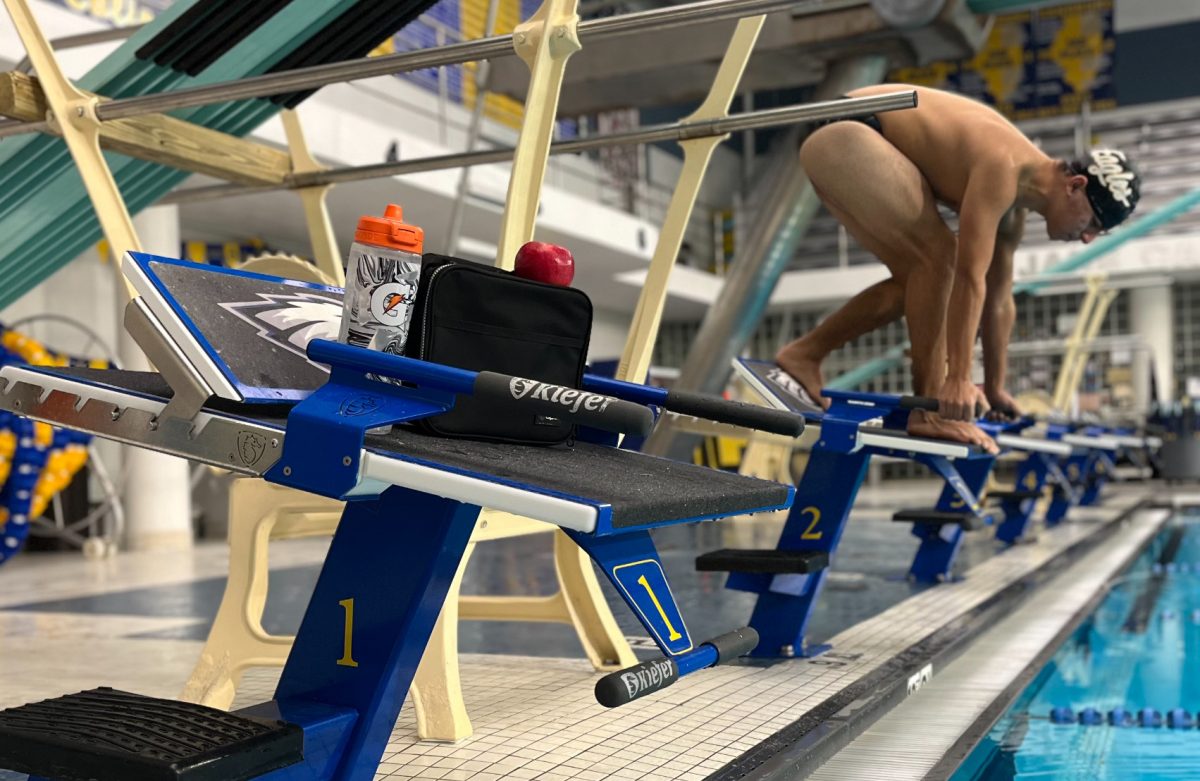Here at Sandburg, sports are a very important part of our school culture, and our students prepare for their competitions in various ways. Among all of these, nutrition plays a key role in their performance.
Pregame meals and can either provide the necessary energy and nutrients required to be at their best or contribute to disappointing results. The choices student athletes make regarding their food before their sporting events can make all the difference on game day.
For many athletes, the ideal pregame meal includes a balance of carbohydrates and protein. Whether it’s a chicken and rice combination, or something as simple as a bagel with cream cheese, it’s important to focus on giving your body the necessary nutrients needed for successful performance.
Varsity hockey player Jacob Rihani emphasized the importance of eating well before a game. Rihani mentioned chicken and rice as a pregame ritual. “It gives me the carbs and the protein I need before a game.”
Similarly, Varsity swimmer, diver, and water polo player Charlie Medlicott said that the night before a meet he will “typically eat some type of pasta, just because of the carbs that are in it, and it helps create energy for the meet the next day.”
JV soccer captain, swimmer, diver, and water polo player Zain Shalabi said, “The night before a match I’ll make sure to have a lot of carbs and protein.”

They all also talked about how the time of their game or meet plays a big role in what they’ll eat. Rihani said that “If we have a morning game, I usually like to have eggs and toast, something like that. For my evening games, I usually just have chicken and rice.”
Medlicott said that his “favorite thing to eat before a meal has to be my dad’s homemade pancakes that I’ll eat before morning meets with fruit and all-natural, sugar-free syrup on top.”
However, eating too much right before an event tends to deliver bad results on performance and overall feeling. Rihani said that “If it’s the morning, I won’t eat that much. I still eat, but I try to eat a couple of hours before so I can digest all the food and have all the nutrients.”
Not only can overeating provide bad results physically in a game, but it can also affect an athlete’s performance mentally. Overeating can affect cognitive function, leading to a decrease in concentration and reaction time.
Shalabi mentioned a game in which he drank a milkshake right before it started. “It made me feel really bloated and heavy.”
This is why he said that “personally, I would not eat three hours before the match because I need to be light and agile. But when I do eat three hours before the match, I’d keep it light, very light, like yogurt, stuff like that. Not anything heavy like fast food.”
Gavin Smalarz, a track and cross country runner, also shared his thoughts. “Before races, I eat a bagel with cream cheese and a banana. I’ve tried other things but I’ve found this works best for me.”
He likes to typically “avoid meals high in protein due to it being too filling before. It’s better to be hungry for a race, since the full feeling can make you throw up.”
Proper hydration plays just as big of a role in a game as proper nutrition. Rihani said, “It’s pretty important. I usually have a Biosteel before every game, and it hydrates me and gets my energy up.”
Medlicott shared a simpler preference for staying hydrated. “I’ll stick to water mostly, but if I were to drink something else, it’d be either Vitamin Water or Gatorade.”
Shalabi sets volume goals to maintain hydration. He said, “I have to drink 128 ounces of water so that I don’t get tired during the game.” He also said that “sometimes I’ll drink Gatorade, but usually water is good enough.”
Smalarz takes a different approach. “A major strategy I use for staying hydrated is starting to drink higher amounts of water 2 days before the race.”
Postgame meals and nutrition choices are important for refueling after a game, too. Shalabi said that “I’ll go home, and I’ll have chicken and rice. I’ll have whatever my mom makes, but it just depends on the day. It all needs to be heavy. I’ll eat a lot.”
Smalarz also notes that the type of athletic competition affects his nutrition choices, too. “During cross country I watch what I eat more, but during track, it’s more lenient because of the shorter distances.”
Medlicott said, “I balance my diet by eating more carbs during the swim season, but I’ll also make sure to get vegetables, fruits, and protein in.”
Pediatric experts from the University of Chicago Medicine Comer Children’s Hospital have said that “for young athletes, planning is key to eating the right nutritious foods at the right times.”
They emphasized the benefits of good hydration, complex carbohydrates the day before, and high protein meals after a high athletic intensity event. All of the Sandburg athletes stressed the importance of this on their performance as well.
These athletes have developed their own personal routines in which they feel most successful. Medlicott said, “I’ve learned that usually you’ve just got to stick to what you know does good for you, because sometimes if you experiment, it won’t go so well, and the meet will be ruined, and you’ll never get to do it again.”
Shalabi talked about how he believes that feeling energized on the field doesn’t always entirely depend on what you eat or drink. “Sometimes I’ll have an energy drink like two hours before the game so I can be alert. But that stuff is really important for you mentally. It’s more mental than physical.”
The choices any athlete makes about food and hydration can make or break their performance. Whatever the nutrition practices involved, the key is finding what works best for each individual athlete and sticking with it. Proper nutrition, timing, and hydration all play essential roles in achieving success.
According to these athletes, it’s not just about what’s on your plate, but how it helps you perform at your best, that matters most.


